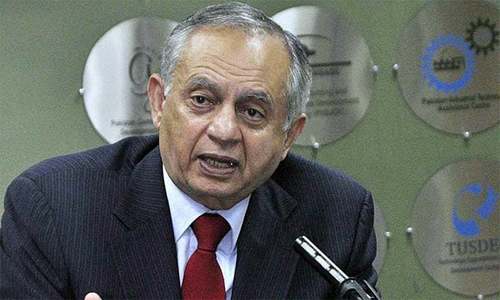FOLLOWING the militant attack in India-held Kashmir’s Pulwama area on Thursday, tensions between India and Pakistan are once again running high.
Over 40 Indian paramilitary troops were killed in the attack, which has been claimed by the Jaish-e-Mohammad, a proscribed organisation. And once again, there are allegations from across the border — as there have been in previous such strikes where India’s security personnel in occupied Kashmir have been targeted — that those who planned the attacks had links with the Pakistani state, a charge that Pakistan has vigorously denied. In fact, the Pakistan Foreign Office has condemned the attack, saying that it was “a matter of grave concern”.
After each such incident, the already strained ties between the two countries take a further hit, this time with Delhi vowing to work for “the complete isolation ... of Pakistan” from the international community, while withdrawing the MFN status for Pakistan. Both countries have summoned each other’s envoys — India, to protest against what it sees as Pakistan’s ‘role’ in the attack, and Pakistan to refute India’s unproven allegations.
Unfortunately, this has become a never-ending cycle of blame games, rebuttals and denials — with no joint engagement to understand the cause of the violence. To Pakistan’s credit, although it has vowed political, moral and diplomatic support for the Kashmiris, successive governments have at least attempted to reach out to India — several times — to engage in talks, but there has been no reciprocal gesture from Delhi, which has more often than not jumped to its own conclusions.
If there is solid evidence that non-state actors used this country’s soil to target others, then the Indians must provide it and Pakistan must conduct investigations. But without such cooperation, it is unlikely that a solution will be found.
Importantly, the young suicide bomber in the Pulwama attack was a native of IHK. For many years now, India’s increasingly strong-arm, brutal tactics in IHK have alienated the local population who have had no need of outside help to vent their anger and frustration. Young Kashmiris are taking up the gun and attacking symbols of the Indian establishment. They have been met with a hail of bullets but have not been deterred. There have been several instances of students, academics and intellectuals choosing the path of armed struggle, mainly because they see no other way to resist the atrocities unleashed by the Indian military machine.
The fact remains that until Delhi backs down from its militarised approach to the Kashmir issue, the violence will continue. Brutality will only beget more violence. It is only through the path of negotiations involving Pakistan, India and the Kashmiris that the stand-off can be resolved. But for that India will have to shed its rigidity and recognise that Kashmir is indeed a disputed territory — a reality the international community affirms.
Published in Dawn, February 16th, 2019













































